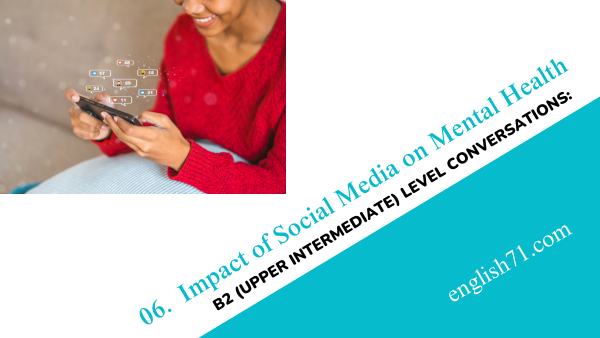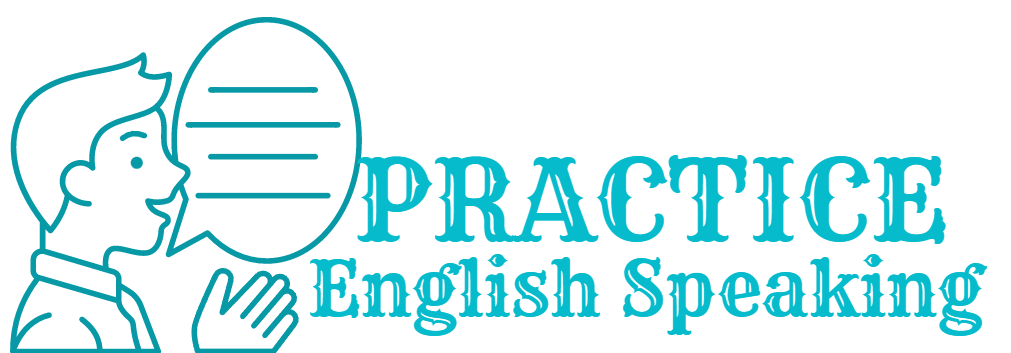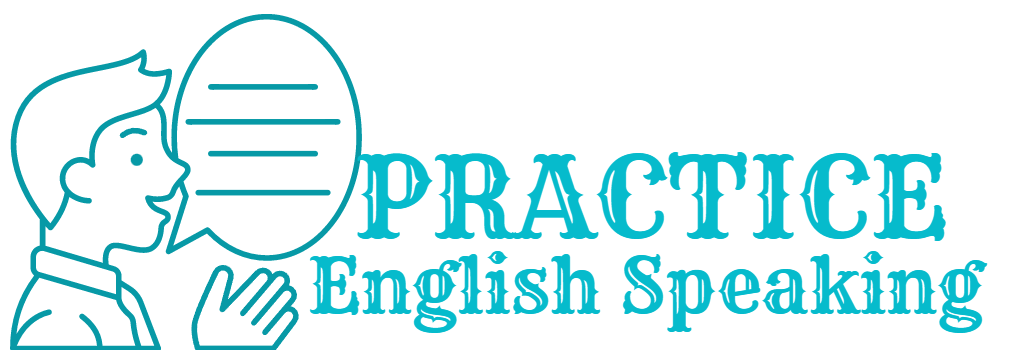B2 (Upper Intermediate) level Conversations: (6)Impact of Social Media on Mental Health

Ali: Hey Lisa, have you ever thought about how much social media affects our mental health?
Lisa: Absolutely, Ali. It’s a topic that’s been on my mind lately. I feel like social media has both positive and negative impacts.
Ali: Yeah, the constant comparison and pressure to showcase a perfect life can be overwhelming. I’ve read about the rise in anxiety and self-esteem issues linked to social media use.
Lisa: True, but on the flip side, it also connects people, provides support networks, and spreads awareness about mental health issues.
Ali: Good point. Do you think the “highlight reel” aspect contributes to a distorted view of reality?
Lisa: Definitely. People often share the best moments, creating unrealistic expectations. It can make others feel like they’re falling short.
Ali: And the anonymity can lead to cyberbullying, which is a serious concern. It’s like a double-edged sword.
Lisa: Agreed. On the positive side, social media can be a platform for expressing emotions and finding communities that understand and support us.
Ali: Have you come across strategies for maintaining a healthy balance? I’ve read about digital detoxes and setting time limits.
Lisa: Yes, those are helpful. Creating boundaries, being mindful of our usage, and focusing on real-life connections seem crucial.
Ali: What about the impact on sleep? The constant notifications can be disruptive.
Lisa: That’s a significant issue. The blue light from screens can affect melatonin production, disrupting sleep patterns. It’s something we should be mindful of.
Ali: And the fear of missing out (FOMO) is real. People see others having fun, and it can lead to feelings of isolation.
Lisa: Absolutely. It’s essential to remind ourselves that what we see on social media isn’t the full picture.
Ali: I’ve heard discussions about the role of influencers in promoting unrealistic beauty standards. It puts immense pressure on people, especially the younger generation.
Lisa: True. Body image issues and the desire for external validation can stem from these unrealistic ideals perpetuated online.
Ali: But on a positive note, social media campaigns advocating for mental health awareness have gained momentum. It’s becoming a platform for breaking stigmas.
Lisa: That’s a silver lining. If used responsibly, social media can be a force for good, fostering support and understanding.
Ali: So, do you think there should be more regulation or awareness campaigns about the responsible use of social media?
Lisa: Both, I’d say. Regulation can address issues like cyberbullying, while awareness campaigns can educate users about the impact on mental health.
Ali: It’s a complex issue that requires a multi-faceted approach. Well, Lisa, it’s been a thought-provoking conversation.
Lisa: Absolutely, Ali. It’s crucial to stay aware and mindful of how we engage with social media for the sake of our mental well-being.



Summary:

